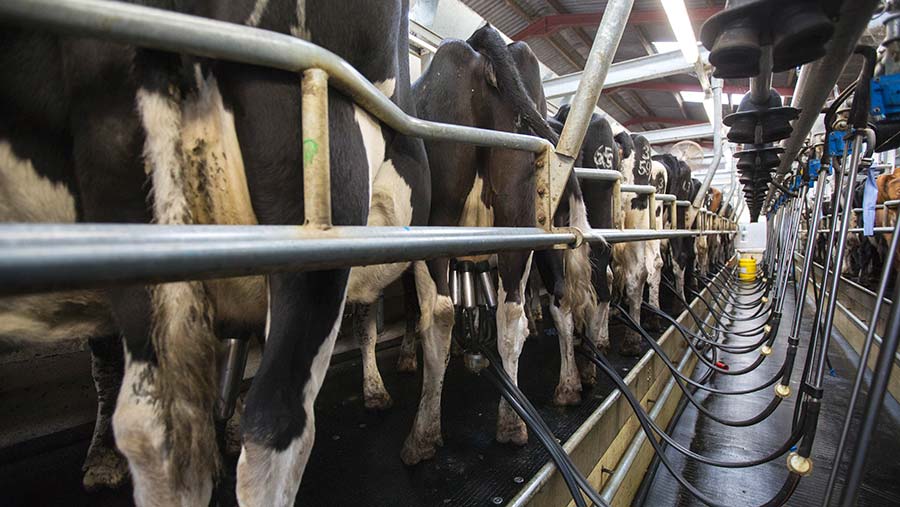FW Opinion: More aid needed to help farmers hit by lockdown
 © Tim Scrivener
© Tim Scrivener Good things, it is said, come in threes and, in terms of government measures to help farmers weather the coronavirus storm, this week has been no exception.
For starters, Defra has finally agreed to give English farmers an extra month to complete their Basic Payment Scheme (BPS) applications without penalty, recognising the disruption the pandemic has caused to many farm businesses.
See also: Defra extends BPS deadline to 15 June
In this endeavour, Defra is joining the Welsh government – though administrations in Belfast and Edinburgh have not followed suit.
About the author
 Philip Clarke
Philip Clarke
Executive editor, Farmers Weekly
Contact:
E: philip.clarke@reedbusiness.com
T: @FWphilclarke
Read more articles by Philip Clarke
Another positive is the Defra announcement that 75% bridging loans will be made available this month to those still waiting for their 2019 Countryside Stewardship money.
It is estimated that about half of 2019 claimants are yet to be paid, so the loans will provide some essential cashflow to a significant number of farmers and landowners.
The third piece of good news is the government’s announcement of a Bounce Back Loan scheme.
This will offer small and medium-sized businesses affected by coronavirus loans of up to £50,000, guaranteed by the government, with no fees or interest payable for the first 12 months.
It is expected that this scheme will be considerably more useful than the Coronavirus Business Interruption Loan scheme, promising as it does easier access and faster payment.
These three measures are certainly helpful. But, as ever, there is more the government can and should be doing to underpin domestic food production – not least in the dairy sector.
Yes, it recently relaxed some competition rules, enabling processors to co-operate more and so ease product flow to different market outlets.
But that is far short of what is needed at producer level. Many hundreds, indeed thousands, are facing reduced payments, delayed payments and, in some cases, no payment at all for milk they have been forced to discard.
Coronavirus is hitting the whole economy hard, farming included. And while farmers are finally winning some recognition for their role as “essential workers”, to continue producing food for the nation, they need certainty
An NFU-organised letter writing campaign has seen more than 2,200 letters sent to 400 MPs calling for urgent help.
In particular, the NFU is demanding targeted grants for affected farmers, market support measures such as private storage aid, and a government-run milk reduction scheme to better balance supply and demand.
All these ideas make good sense and are fully justified by the extraordinary circumstances the dairy sector now faces, though, as Farmers Weekly went to press on Wednesday (29 April), Defra secretary George Eustice seemed to be playing down the prospects.
But, as well as such short-term measures, the government needs to offer some medium-term reassurance, too.
The EU Commission has already said it will allow 70% advances of BPS payments in October rather than December, and 85% advances for agri-environment schemes. The UK authorities should make the same commitment.
And looking further ahead, Defra should delay its plans to start phasing out direct payments to farmers in 2021 by at least a year, to give the sector more time to prepare for the radical shake-up this will then trigger.
Delaying would also give the government more time to consider its priorities when it comes to food security and supply chain relationships in a world order that is now so fundamentally changed.
Coronavirus is hitting the whole economy hard, farming included. And while farmers are finally winning some recognition for their role as “essential workers”, to continue producing food for the nation, they need certainty.
Starting to slash BPS payments next year – which for many farmers is the entire profit for their business – can only serve to undermine their viability.
